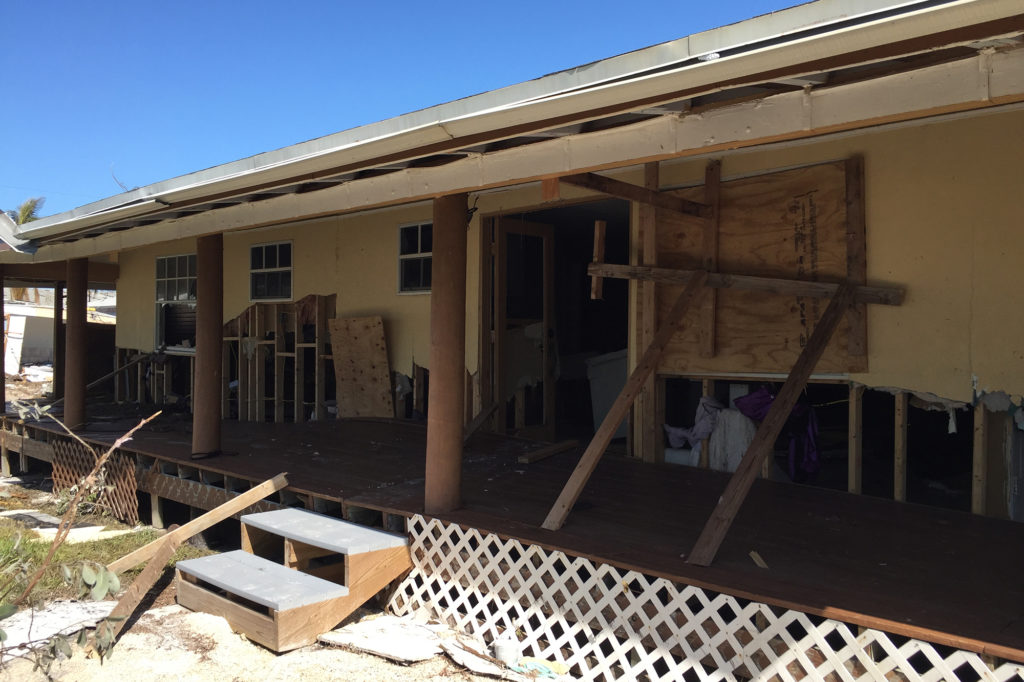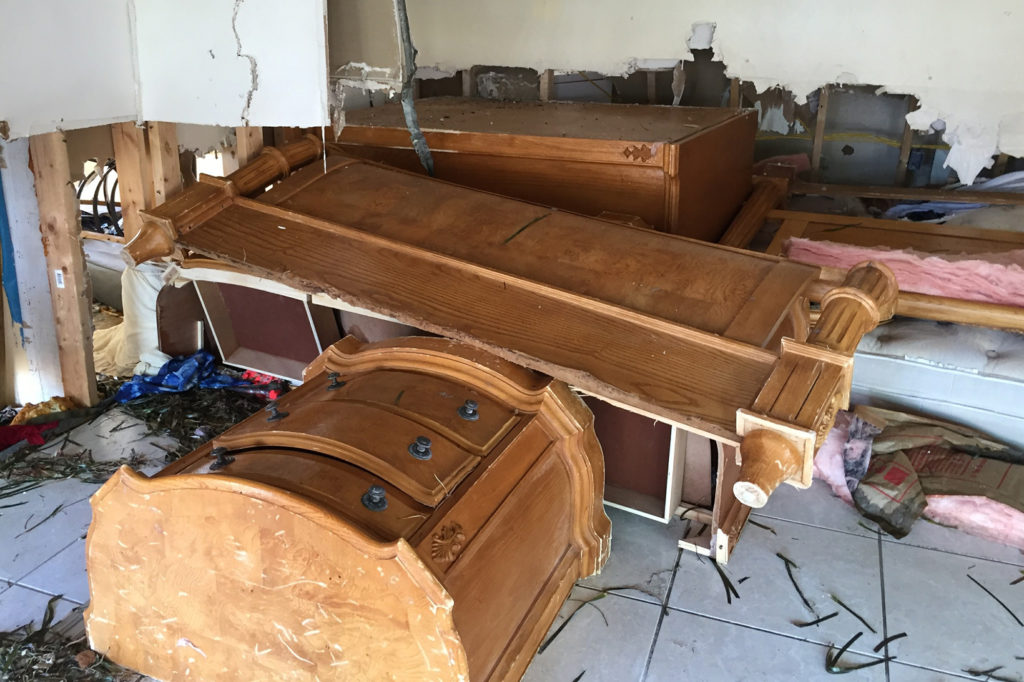
Don Salo is no stranger to hurricanes, but Irma was different.
“Our house survived every storm since 1997, but this time we took a lot of damage,” said Salo, an information technology specialist at Glades Electric Cooperative in Moore Haven, Florida.
“Irma tore almost every shingle and most of the soffit off the roof. We also lost a new carport,” which came down on his recreational vehicle.
That’s not all. Salo sees discoloration of his ceiling, indicating attic water damage. He’s also concerned about potential mold problems that have not surfaced since the storm.
“We’re kind of worried, because we haven’t had these problems before,” said Salo, who knows he has at least $20,000 in damage from the Sept. 10 storm—and a long road ahead.
“When we’re finally ready to start repairs, we know there’ll be a lot of folks in this area who need work done, and it’s going to take a lot of time.”
Yamile Moreira, a consumer accounts representative at Tavernier-based Florida Keys Electric Cooperative, is in a similar predicament.
“You’re never insured for what you owe. I’ve already applied for help from FEMA, but they’re pretty busy so I’m not sure when I will hear from them,” said Moreira.
NRECA and the Cooperative Development Foundation established a fund specifically dedicated to helping individuals and organizations identified by electric co-ops as having long-term recovery projects.
“Co-ops have the boots on the ground to identify who needs the help and where it can do the most good,” said Leslie Mead, CDF executive director. “Donations may ultimately be given to the electric cooperatives so they can make grants to community stakeholders working on specific projects.”
Since the fund was established in early September, more than $18,000 has been donated by electric co-ops and individuals.

NRECA has declared Nov. 13-17 as Concern for Community Week for its employees and designated the CDF Hurricane Relief Fund as a recipient for donations.
“Concern for community is a bedrock principle of the co-op movement. I’m glad that we were able to partner with CDF to make a difference for those who are still dealing with the aftermath of these storms,” said NRECA CEO Jim Matheson.
“I’m looking forward to raising thousands of dollars during NRECA’s Concern for Community Week and encourage everyone to consider making a donation to the CDF Hurricane Relief Fund. Each contribution makes a difference,” Matheson added.
In the meantime, co-op staffers like Monica Carpenter continue trying to get their homes back in order while still serving members.
“I’ve had insurance adjusters out to the house three times,” said Carpenter, an operations assistant at Victoria Electric Cooperative in Victoria, Texas. Hurricane Harvey’s 135 mph wind gusts twisted her double-wide manufactured home on its foundation.
“There are cracks in the walls where the sections of the house join together,” said Carpenter. “You can still smell the dampness, and there’s softened sheetrock around my living room windows, indicating moisture is still getting in.”
Trace McCuan, CEO of Nueces Electric Cooperative in Robstown, Texas, said his home sustained damage to fencing, a boat dock, and stucco siding. But he sees a lot worse.
“Neighbors have had to wreck out all the sheetrock and insulation, and some have wood floors that are ruined,” said McCuan. “There are boats sunk in the canals and some homes have lost major portions of their roofs.”
Damage assessment, debris removal, and basic repairs have been ongoing for weeks in many communities, said McCuan. But temporary emergency housing and essential furnishing remain in short supply in many communities. That’s exacerbated a labor shortage, vital for many contractors and service providers involved in residential and commercial repairs.
Still, volunteers come in regularly to help for a few hours or a couple of days, said McCuan.
“This has been a great community effort.”
Derrill Holly is a staff writer for NRECA.